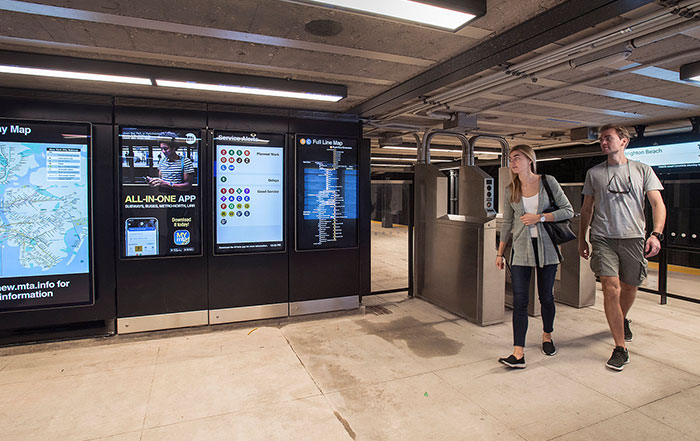Photo Courtesy of MTA/Patrick J. Cashin
A looming fare hike dominated the final MTA Board meeting of 2018.
By Michael V. Cusenza
With some version of a fare and toll increase in the offing, the Metropolitan Transportation Authority Board recently voted to approve a $17 billion budget.
The board will vote on a hike plan next month. The added cost to ride is expected to rake in roughly $270 million. One fare hike initiative calls for the base fare to jump to $3 from the current $2.75. The other program would keep the base fare as is while hitting hard the wallets of customers who purchase weekly and monthly passes.
Board materials depicted an already beleaguered agency in fiscal peril.
“MTA’s finances are structurally imbalanced, with expenses surpassing revenues. Budgets for 2017 and 2018—and now for 2019 as well—have been balanced with ‘one-shot’ actions. Over the past year and a half, projected MTA revenues have declined significantly…with fare and toll revenues down $1,027 million, dedicated taxes down $586 million and other operating revenue down $160 million.”
The latest budget is balanced through 2019; however, the board projects deficits of $510 million, $816 million and $991 million for 2020 through 2022, respectively.
And passenger revenue seems to continue to nosedive. On Wednesday, the board blamed the snowballing negative trend on: “Increased fare evasion; planned subway service changes to accommodate construction and maintenance/repair work; increased use of for-hire vehicle services; and increases in telecommuting and the use of e-commerce.”
Highlights of the latest plan include:
Hold projected fare/toll increases to 4 percent in 2019 and 2021: The plan continues to project net 4 percent biennial fare/toll increases (the equivalent of 2 percent per year), which is lower than the projected two-year inflation rates of 5.3 percent and 4.7 percent in 2019 and 2021, respectively. Consistent with recent Plans, a March 1st implementation is assumed for both the 2019 and 2021 increases. The annualized yield of these increases is projected to be $316 million and $329 million, respectively.
Maintains prior plan investments: The plan maintains major investments for the Long Island Rail Road “Forward” plan, the “Bus Plans” at New York City Transit and MTA Bus, and the Metro-North Railroad “Way Ahead” plan. Also included is maintenance of the Subway Action Plan, which will be funded from Phase 1 of congestion pricing, using fees from for-hire vehicle trips.
Bus and Subway Guidelines: Bus and subway service guidelines, which have been reviewed and approved by the board, are used to maintain an appropriate level of service based upon actual ridership on a route. The guidelines provided an objective standard of maximum loads for different times of day, and are intended to minimize the occurrences when buses or trains are either overcrowded or underutilized. During years of ridership growth, these service guidelines were the basis for increased service where it was warranted, but over the past several years as ridership has declined, guideline-based service reductions had been deferred. With ridership levels not rebounding, NYCT is proposing service guideline adjustments beginning in 2020 that result in savings of $41 million annually, with reductions of $10 million for subway service and $31 million for bus service.

